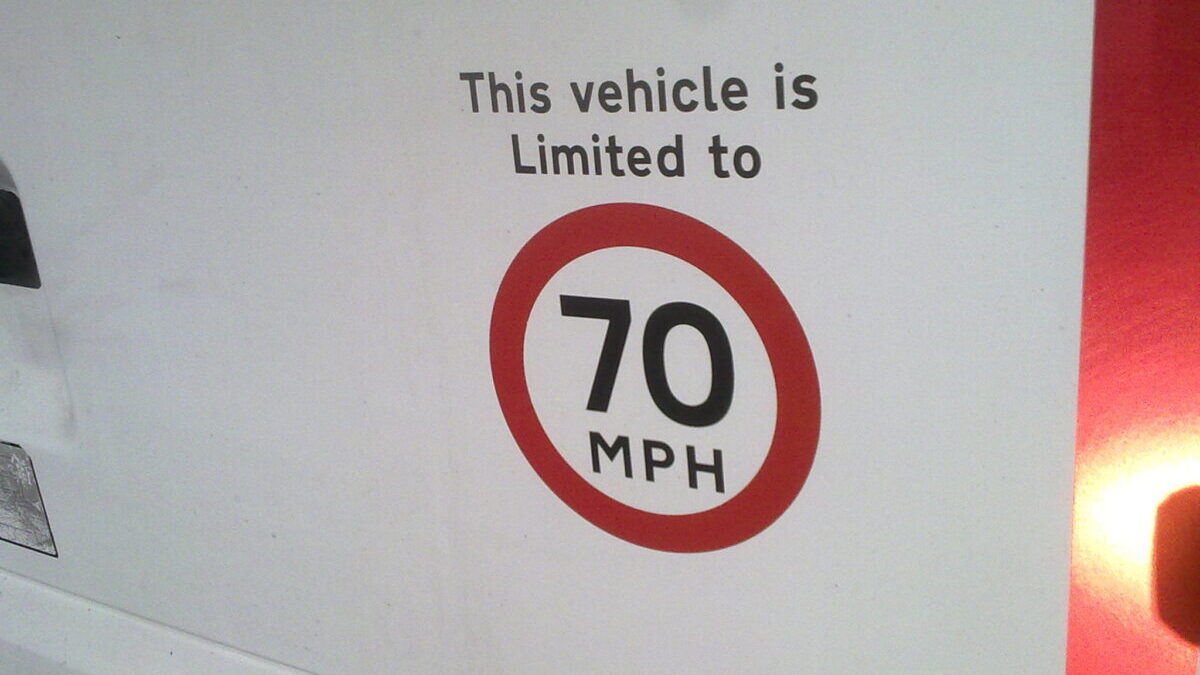
While I’ve never been a customer of Uber or, more specifically, of one of their drivers, I’m a big fan of any company that uses technology to allow more efficient and profitable use of individuals’ private assets (in this case, their cars) to benefit consumers (who can’t find a taxi or want something more convenient or comfortable) while challenging the power of regulators and taxi cartels.
In short, Uber is, at least in theory, a capitalist’s dream. Beyond that, it works, or at least it’s perceived to be working by some very successful investors: In June, Uber closed a financing round that valued the company at $18 billion only four years after it began operating. As The New York Times noted, that makes Uber “worth more than Alcoa, Tiffany or Whole Foods. (It’s bigger than Hertz Global Holdings and Avis Budget, too.)”
Five months ago, the company was “operating in 128 cities in 37 countries around the world with hundreds of thousands of transportation providers and millions of customers connecting to our platform.” By August, it was up to 170 cities. Just this month, they announced service in Cairo (Egypt, not Illinois), Santa Fe, Chattanooga, four towns in northwestern Oregon, Little Rock, and Budapest. They’ve also rolled out a partnership with online music service Spotify through which an Uber customer can hear music of her choice while waiting for a ride and then have her own playlist continue once she gets in the Uber vehicle.
Uber’s drivers are rated by passengers, and if they do not maintain a high average rating they are removed from the ranks of the Uber-approved. Although not without its controversies (such as riders being pressured to give higher ratings than a driver deserves), Uber is a major part of the “trust economy” being fostered on the Internet where experiences of others guide consumers.
Now Comes the Caveat
Uber is truly a marvel of a business. As such, I want to love it. But they sure are making it difficult. As I capitalist, I’m all for competition. The “mainstream” media, including most journalists who write about economics, have no understanding that the true wonder of capitalism is not what it does for corporations or for the rich but what it does for the rest of us, for the ordinary consumer, and even for the poor. Uber is democratizing a highly centralized and controlled business. And I love that Uber is willing to take on regulatory authorities around the country and drive taxi cartels crazy.
But just because you’re competing hard doesn’t mean you have to be an a-hole about it.
It’s one thing to tell your drivers that they can’t remain part of the program if they also drive for another company—in this case, Lyft, another car service with a similar business model. But it’s something else entirely for a couple hundred Uber employees to book thousands of rides with Lyft, then cancel them, simply to disrupt the competitor’s business or to “take short, low profit rides largely devoted to luring (Lyft drivers) to work for Uber.” To be fair, Uber’s management (somewhat unconvincingly) denies responsibility for these actions, and Uber later accused Lyft of similar shenanigans.
Uber’s Cutthroat New Hired Gun
The bad press about these tactics was mostly limited to tech-oriented web sites and seemed to have negligible impact on Uber’s business. So perhaps it’s not surprising that they’re doubling down. Nor, given Uber’s history of aggressive tactics (“aggressive” not necessarily synonymous with “objectionable”), is it surprising that they’d bring in a large-caliber hired gun to continue down that road.
Unfortunately, at least if you care about ethics in business (which I do, because unethical businessmen encourage people to look to government for “solutions”), the hired gun they chose was David Plouffe, Barack Obama’s 2008 presidential campaign manager and later a senior advisor to President Obama. Plouffe is now Uber’s senior vice president of policy and strategy.
Plouffe is a brilliant strategist and communicator. If the GOP had anybody half as talented (or half as ruthless), Mitt Romney would be president today. (I doubt anybody could have saved John McCain.) Plouffe will do and say anything to win. He will dissemble and demonize the opposition. And his results speak for themselves, which I suppose is the only way he and Obama and their supporters live with themselves, given that Progressivism is an ends-justifies-the-means worldview. Perhaps Plouffe took a lesson from his predecessor, Obama election guru David Axelrod, in thinking that the easiest way to win is simply to eliminate the competition—by any means necessary.
Will Uber Become a Transportation Mafia?
That wasn’t a difficult conclusion to reach in Chicago, and especially not when it came to Obama: In his 1996 state senate campaign, the Chicago Board of Elections invalidated a stunning 62 percent of the signatures gathered to put his Democratic opponents on the primary ballot, allowing Obama to run unopposed. According to one analysis, the board only invalidated 36 percent of the signatures in ten other challenges that year.
The other signature Obama tactic is smearing his opponents by uncannily managing to expose private records of their personal lives. In the 2004 U.S. Senate race, the Obama team, led by Axelrod, pushed a story about the divorce records of Obama’s main Democratic primary challenger, Blair Hull. The story destroyed Hull’s candidacy. Axelrod and Obama went back to that tactic for the general election, getting a friendly judge to unseal the child custody papers between Republican Senate candidate Jack Ryan and his ex-wife Jeri Ryan, best known for her role as “Seven of Nine” in the “Star Trek: Voyager” TV series. Ryan dropped out of the race, leaving Obama a clear path to victory against the enduringly unelectable replacement candidate, Alan Keyes.
Axelrod has had some big wins because he is willing to hurt people in the process with his Mafia-like tactics. Plouffe is undoubtedly an apple from the same poison tree. The Washington Post says “Uber hired David Plouffe when it realized ‘techies’ can’t do politics.” I get that. But coming from a world where companies have mottos like “Don’t be evil,” one would expect a moment of hesitation by even a company as uncompromising, and facing such entrenched bureaucratic foes, as Uber.
Does Uber CEO Travis Kalanick want to be the Michael Corleone of the transportation business, justifying bad (although not necessarily illegal) actions by saying his targets “got what was coming”? It seems he does, given recent reports that Uber is aiming to hire political-style opposition researchers to “weaponize facts” and “throw mud” in their battles against taxi cartels and regulators. It remains unclear just what is meant by “facts.” Do they simply mean facts about the hand-in-glove operations of regulators and their favored taxi oligopolies, a system which represents a near-perfect example of regulatory capture and which does indeed deserve to be exposed and dismantled? Or do they mean information about the private lives of people they view as competitors or obstacles?
Yank Your Opposition’s Skeletons Out of the Closet
Unfortunately, the latter seems as likely, as the former, given the recent boneheaded remarks by another Uber executive, Emil Michael, no doubt inspired by the arrival of the go-for-the-jugular Plouffe, who suggested the company should spend a million dollars to look into the “personal lives (and) families” of reporters who were giving the company unfavorable press coverage. By speaking in front of a Buzzfeed reporter, Michael missed an important lesson from Don Corleone: Never tell anybody outside the family what you’re thinking.
Michael was particularly incensed with PandoDaily founder and editor Sarah Lacy, who is, according to another reporter, on “a longstanding mission to paint Uber as misogynistic and abusive to women.” In October, Lacy wrote an article describing Uber, or at least Kalanick, as exuding “sexism and misogyny.”
Maybe, as investors have argued, Kalanick himself has the balance of ‘acceptable’ misogyny right. You know, he makes gross public comments about how his company should be called ‘Boober’ because of all the tail he gets personally along with its success, but he wouldn’t actually physically harm a woman himself. And maybe, the good of the company he builds — and the many non-morally bankrupt people who I believe work there — outweighs even his worst qualities.
Lacy goes on to imply that Kalanick’s womanizing—which she hasn’t proven and which wouldn’t be particularly surprising given than he’s a young single billionaire—means that female passengers in Uber vehicles are taking unnecessary risk of harm by being “locked, alone, late at night in a metal box with Uber drivers.” Presumably this is due to her conclusion about an “asshole culture” at Uber and not because an amorous Kalanick shows up, like Pepé Le Pew, in the back seats of random vehicles.
Lacy’s presumptions are just that, and her conclusions are wildly overwrought; I understand why Michael would be upset at her characterizations of the firm and of his boss. But that doesn’t mean you look to personally harm a reporter, going as far as to plan a covert opposition research campaign so that “nobody would know it was us.”
The Michael story “went viral” and hurt Uber more than Lacy’s original story or Uber’s prior hard-nosed approaches to competition , although even this story is probably not known by most of Uber’s current customers or the riding public overall. But if there is any credible evidence of an “asshole culture” at Uber, it comes from the fact that they hired Plouffe, who has turned that particular attributive noun into a big payday as he takes their business from hardball to beanball.
The “destroy the enemy” approach Michael voiced is a natural outgrowth when a company with aggressive but unsophisticated political instincts hires a man who comes from a political culture in which any sort of ethics are (much as the United States Constitution is to the same people) an annoying roadblock to gaining control, whether over our lives or just the transportation-for-hire industry. It is a roadblock which, if it cannot simply be pushed aside, is to be blown to pieces, collateral damage be damned.
Kalanick should think carefully about what kind of business he’s running. The transportation industry, including entrenched bureaucracies and protected taxi oligopolies, demands an intensely focused and competitive approach. Capitalism, like politics, ain’t beanbag. But when you cross a line into being willing to hurt people—and hiring hit-men like Plouffe to do it—it’s hard to return to civilization, as Michael Corleone learned the hard way.









